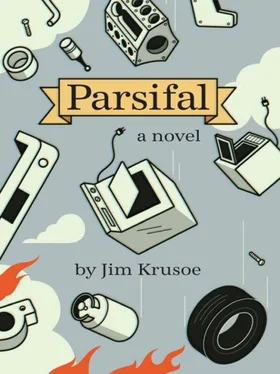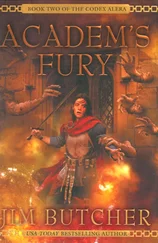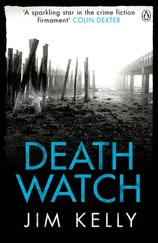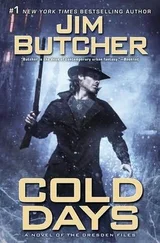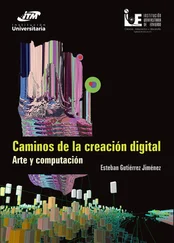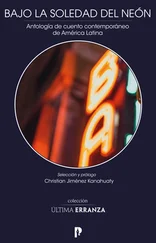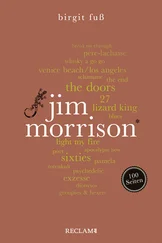According to the other therapists, Joe had been a maverick in a profession that seemed to attract mavericks. They whispered loudly that if it weren’t for the court-appointed cases sent his way by a friendly judge or two, Joe would have had no cases at all. It made Parsifal feel good to know he had been of some use.
The first person to the lectern was a man who introduced himself as Buster. His thin black hair was pulled over his scalp, and he said he’d cut himself shaving that morning, which was why there were pieces of toilet paper stuck to his face. “Bear with me,” Buster said. Buster said that he lived in the apartment next door to Joe, and told the group how Joe used to sit up late into the night listening to jazz. Joe favored swing and be-bop, Buster said, and didn’t much care for the so-called “progressive” style, but Joe had once admitted to Buster that people had a right to do it, if it meant actual progress.
“That’s what I told him,” Buster said. “That’s exactly what it means.”
Buster sat down and was followed by a blond woman in dark glasses whose name Parsifal didn’t catch. She’d obviously been crying, and managed only to sob out, “He was so kind and a great tipper,” before she sat down again.
Then came a long and awkward silence as the master of ceremonies (Parsifal didn’t quite know what to call him) asked if anyone else wanted to speak. Parsifal waited — he was only a patient— the patient, it appeared — but after the family waved their arms in the negative to indicate they were too grief-stricken to say anything, and really, they had only come to hear what others had to say about him, and then the other therapists did the same, indicating that whatever they had to offer would more likely come under the heading of professional development than grief, Parsifal felt he had to do something.
Come on, Parsifal , he told himself. Joe sat through many a missed session and many an hour of listening to you, and when you skipped your appointments because you either forgot, or had better things to do, did he turn you in, as he could have, for being in violation of the terms of your probation? He did not. Did Joe ever so much as raise a hand against you? Most assuredly, he did not. So Parsifal walked to the lectern, and as he did, heard a small gasp come from the audience. He had no idea of what he was going to say, but the important thing was to fill the silence, to say something. He looked out at the audience and they looked back at him.
“My name is Parsifal,” he said. “I am here as a former patient of Joe’s, and I just want to tell everyone how sorry I am that Joe stepped into that pit the plumbers had dug outside his door without him knowing anything about it. He was more than a therapist to me; he was also, though he may have denied it, a father figure — and a customer, too, because I once fixed an old Esterbrook he had found in the drawer of his desk. Among inexpensive fountain pens, Esterbrooks are some of the most reliable you can have, in my experience, and if any of you need your fountain pens repaired in the future, I’ll be happy to give you a ten percent discount in his memory.”
Parsifal sat down, feeling better, and everyone went home soon after that.
The following day Parsifal walked and dragged himself and crawled along the forest floor, over streams and under logs, through early Devonian ferns and mosses, beneath the conifers of the Permian Age, over the grasses of the Eocene, amid the flowering plants of the Paleocene and the occasional contemporary smashed beer can or candy wrapper. (How he missed those energy bars!) He passed a family of deer grazing quietly in a meadow; they looked up with curiosity and, sensing no harm, went back to feeding. He passed a fox playing with her pup, an opossum followed by her brood of baby opossums, fresh out of the pouch; he walked beneath a nest of birds, the small ones stretching out their necks, beaks open wide to receive food from their mother and father; he staggered through a swarm of gnats. It seemed to be family day in the forest, and Parsifal felt strangely sad. Could Walter have been right when he called Parsifal some kind of victim? How could that be, if he himself didn’t know?
Parsifal struggled onward, and meanwhile, overhead, the bird was back. He saw no tree with three anchors on its trunk, no door, no cup. He saw nothing but forest and more forest. “No forest goes on forever,” is one of the major rules of woodcraft, but Parsifal was starting to doubt it, and to make matters worse, something was happening with his vision. It seemed to be — though he couldn’t be absolutely sure — that he was losing the vertical viewing area of his gaze. That is, if his eyes were windows, someone was simultaneously pulling down a set of blinds from the top of the window and raising another set from the bottom. Things were turning into wide-screen mode.
Also, the throbbing in his leg was moving upward, above his knee, but on the positive side, intense pain had a way of pushing aside panic.
Parsifal still had the stone and the shovel, true — but honestly, neither of them was doing him a whole lot of good at that very moment.
Blindness.
During the first years of fountain pens, prior to the actual Golden Age, which was roughly from 1910 to 1950—prior to the invention of the ballpoint, in other words — it is a little known fact that no fountain pen came with the small clip that holds it snugly inside a pocket of a shirt. That was invented by George Parker, of the Parker Pen Company, and ever since then it’s hard to imagine a pen without one (though some pens are still made this way, primarily for the Japanese market).
So it is possible for something to come from nothing: no clip for many years, and then, suddenly, a clip.
And now, with the fountain pen practically extinct, the clip lives on, attached to ballpoints, and roller balls, and mechanical pencils, and laser pointers.
Did Parsifal hear voices in the distance?
He did not.
All silence the same silence.
Then Parsifal crawled, walked, dragged, et cetera, and once in a while hopped on one foot, too, until, leaning against a tree to catch his breath, his mind was suddenly transfixed by a terrifying sound: the sound of a wrought-iron garden bench, with its legs in the shape of branches and its back made out of metal leaves, whooshing, turning, howling, screaming, end over end and sideways, smashing through the real leaves and branches of the vine-encrusted oak right in front of him.
So much for a truce in the war between the sky and the earth. So much for anything ever getting better. So much for an end to the endless cycle of destruction and being destroyed, of hatred, and revenge, and pride, and fear. Because far from it being some sort of blemish on the face of the world, Parsifal now realized that he had gotten the whole idea wrong. War wasn’t the answer; it was the entire game plan. Destruction and violence wasn’t the aberration, but the norm, the very axis on which the world was poised. These so-called negative elements were not merely dissonant sparks from the fire of goodness burning somewhere; they weren’t sparks at all, but the molten core of things itself. Things falling; things going up in smoke — this was the mechanism, the motor that turned the wheels of the vast and mindless world. Maybe it wasn’t revenge at all, or hatred, or any of the names that our puny human vocabularies could bestow on this destruction; maybe it was more like inhaling and exhaling.
The sky wasn’t angry for any particular reason, nor was the earth getting even. It was just the way things were.
The falling bench had knocked away the vines in front of the tree, revealing the faint shapes of three anchors carved into its bark long ago, swollen and obscured by time.
Читать дальше
